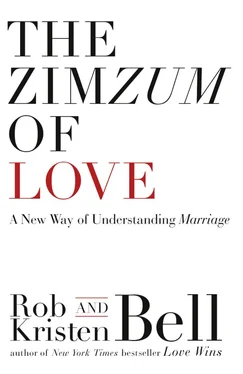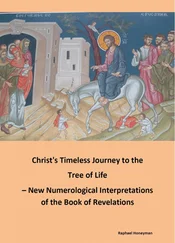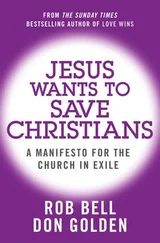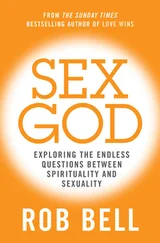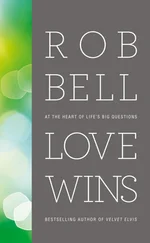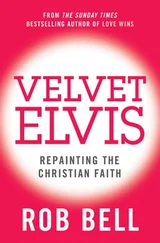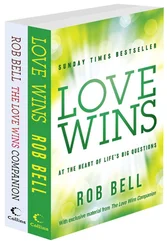You can be friends with someone, sometimes even for years, with a tremendous amount of respect and friendship and history between you, but when that spark ignites, everything changes.
Several months later we were living in the same city, shortly after that we were engaged, nine months later we were married, and twenty years later we’re still exploring the endless depths of whatever it is that began when Kristen got in that truck and we drove off together.

You find each other, your centers of gravity expand as your lives become more and more entwined. You create space for this other person to thrive
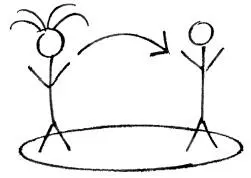
while they’re doing the same for you.
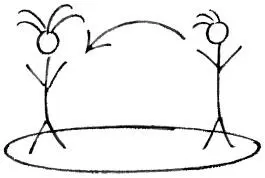
This creates a flow of energy in the space between you.
This energy field is at the heart of marriage.It flows in the space between you, space that exists nowhere else in the universe.
You can become more familiar with how this energy field works.
You can develop language between you to identify what’s happening in the space between you.
You can sharpen your abilities to assess it.
You can act in certain ways to increase the flow.
You can identify what’s blocking the flow, and then you can overcome those barriers.
Years into your marriage, you can continue to intensify this energetic flow between you.
It is risky to give yourself to another. There are no guarantees, and there are lots of ways for it to fall apart and break your heart. But the upside is infinite.
There is a mysterious, indescribable, complex exchange that can happen in the space between you, filling you with joy, confirming your intuition that marriage is not only good for you, but good for the world. Marriage has the uniquely powerful capacity to transform you both into more loving and generous and courageous and compassionate people. Marriage—gay and straight—is a gift to the world because the world needs more—not less—love, fidelity, commitment, devotion, and sacrifice.
We’re for marriage, and we want to give you a new way of understanding marriage.
We call this way the zimzum of love.
Which of course raises the question:
What’s a zimzum?
K:Rob loves words. I realize that may sound strange, but he loves finding new words and odd phrases and then using them around the house, repeating them and thinking they’re hilarious. And the more random the better, like catty wompus or rusty Kleenex .
R:Or Engelbert Humperdinck—
K:—as I was saying …
R:Or unpidgeonholeable —
K:Yes?
R:—or fog index or history of fishes …
K: In the last page of endnotes in his book What We Talk About When We Talk About God Rob gives a list of wordsand phrases and names for apparently no reason other than sheer enjoyment.
R:Like the word cummerbund.
K:Cummerbund?
R:The thing some men for unknown reasons choose to wear around their midsections at weddings. It’s a Persian word, from the word kamar, which means waist—it’s actually a kamar band .
K:I rest my case. Which is why it didn’t surprise me when he started using the word zimzum .
R: Z imzum (originally tzimtzum ) is a Hebrew word used in the rabbinic tradition to talk about the creation of the world—not in a scientific way but more like something somewhere between poetry and metaphysical speculation. Followers of this tradition began with the assumption that before there was anything, there was only God. The divine, they believed, was all that was. For something to exist other than God, then, God had to create space that wasn’t God. A bit esoteric, but stay with me. Their contention was that for something to exist that wasn’t God, God had to contract or withdraw from a certain space so that something else, something other than God, could exist and thrive in that space. And the word they used for this divine contraction is zimzum. God zimzums, so that everything we know to be everything can exist and thrive.
We loved this word zimzum, and we were struck with how well it describes what happens when you’re married. The more we talked about it, the more we found ourselves bending and stretching this word, making it our own.
You meet this person, you fall in love, and you zimzum— creating space for them to thrive while they’re doing the same for you. This zimzuming unleashes energy and creates space that didn’t exist before, generating the flow that is the lifeblood of marriage.
To illustrate how this flow works, we’ll explore four aspects of this space, space that is responsive, dynamic, exclusive,and sacred.
The space between you is extremely responsive.

We’ve drawn this image for responsive as a large, bold arrow toward the other person because everything you do and everything you are affects the flow between the two of you. It’s like a finely tuned radar, or the needle on a record player, the slightest notes and sounds amplified along with every bit of dust or the smallest scratch.
People often aren’t aware of just how responsive the space between them is. It matters what you say, it matters what you do, it matters how you think about this other person, it matters how you think about yourself. All of it, good and bad, shapes the flow between you.
To keep this energy field full of life and vitality, you intentionally act for their well-being. This movement is the foundation of your life together.It’s what everything rests on. It’s the engine, the catalyst, the energy that keeps the space between you humming. It’s what you return to again and again.
The arrow moves from you to them while another comes back to you. That’s how the flow starts, that’s how it’s sustained, and that’s how you get it going again when it’s blocked. You’re looking out for their best while they’re looking out for yours.
K:I don’t really enjoy talking on the phone. I’ll blame it on being an introvert.I much prefer face-to-face conversations. Transitions like ending a phone call are hard for me, and that combined with an overdeveloped sense of empathy can leave me feeling stuck for a painfully long time. Once in a while I’ll have to return a difficult call—something socially awkward or a call in which I have to say no to somebody—and it will haunt me all day. I tell you this because one day Rob brought home a jacket he’d just bought.
R:I remember that jacket. I loved that jacket. The salesman loved that jacket. Other people in the store loved that jacket.
K:And he put it on for me, and I immediately said No way .
Читать дальше
